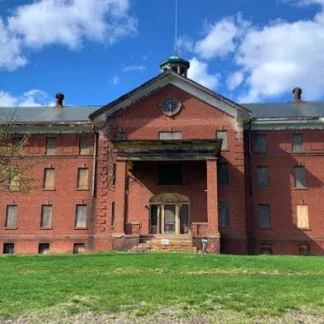Gilead Community Services - Outpatient
Gilead Community Services – Outpatient is a private rehab located in Middletown,...
Connecticut Valley Hospital- Addiction Services provides mental health, behavioral health, and addiction services to men and women in Middletown, Connecticut. Their services are provided at Merritt Hall through the behavioral health department.
Connecticut Valley Hospital- Addiction Services provides detoxification services and inpatient treatment.
The detox program at Connecticut Valley Hospital- Addiction Services is for those who would benefit from a high level of support during detox. This program offers medications that assist in managing the negative consequences of withdrawal.
Inpatient treatment is for those who need mental and physical stabilization. This is a highly structured and monitored style of treatment that often incorporates detoxification into the process. Once stabilization has been achieved, counseling, educational classes, and behavioral approaches to treatment can begin. Common elements of inpatient include individual therapy, group therapy, and at times medication or trauma-informed counseling.
Aftercare programming is for individuals who have successfully gone through a treatment program but who desire or need continual support once they return home. These programs often include alumni groups, group therapy, 12 Step meetings, SMART meetings, and individual therapy. The purpose is to provide a safe space to continuously work on recovery.
Contact us for more information: (800) 828-3396

Connect with Connecticut Valley Hospital - Addiction Services by calling their admissions team directly.
(800) 828-3396 Website Get DirectionsThe Joint Commission, formerly known as JCAHO, is a nonprofit organization that accredits rehab organizations and programs. Founded in 1951, the Joint Commision's mission is to improve the quality of patient care and demonstrating the quality of patient care.
Joint Commission Accreditation: Yes
The Substance Abuse and Mental Health Services Administration (SAMHSA) is a branch of the U.S. Department of Health and Human Services. Established in 1992 by congress, SAMHSA's mission is to reduce the impact of substance abuse and mental illness on American's communities.
SAMHSA Listed: Yes
Trauma therapy addresses traumatic incidents from a client's past that are likely affecting their present-day experience. Trauma is often one of the primary triggers and potential causes of addiction, and can stem from child sexual abuse, domestic violence, having a parent with a mental illness, losing one or both parents at a young age, teenage or adult sexual assault, or any number of other factors. The purpose of trauma therapy is to allow a patient to process trauma and move through and past it, with the help of trained and compassionate mental health professionals.
Gilead Community Services – Outpatient is a private rehab located in Middletown,...
River Valley Services is a public rehab located in Middletown, Connecticut. Rive...
Connection House offers inpatient treatment for individuals recovering from alco...
Albert Solnit Childrens Center is a public rehab located in Middletown, Connecti...